Economics Contest 3: Cost Benefit Analysis – 30 Hive Power to be won
Hi Everyone,
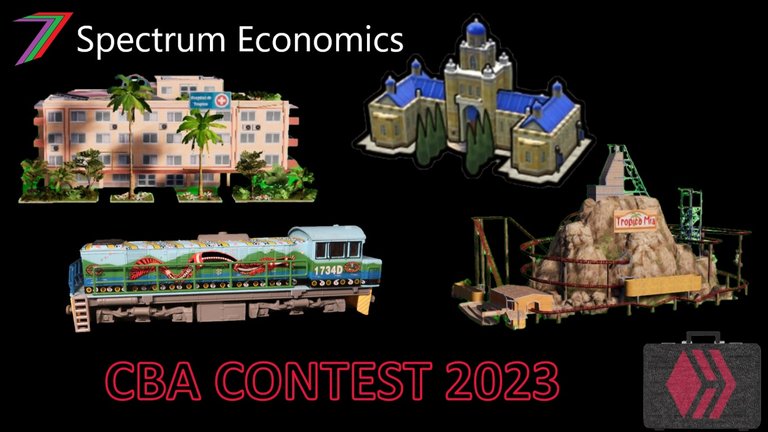
Welcome to the third Economics Contest for 2023. This month is the Cost Benefit Analysis Contest. This contest appeared in the 2021 Economics Challenge Series. It did not return in 2022 as I considered it a little complex for the challenge series. I intended to simplify the game a little. For this contest, the fundamentals of the game remain the same but the parameters provided offer more of a hint about how to invest.
Welcome to the Cost Benefit Analysis Contest
How to Play?
The Cost Benefit Analysis (CBA) contest requires participants to make investment decisions for several communities using an allocated budget. These decisions will be assessed based on Net Present Value (NPV). The participant with the highest NPV will win the contest.
CBAs can be complicated and require considerable amount of analysis. This contest involves only very basic analysis using limited data and basic assumptions. Most data provided will relate to growth rates, population breakdown, capacity of existing facilitates, costs of overcapacity, and cost of investment. Participants need to consider the scenario without investment (base case) and use it to compare against the scenario with their chosen investments (project case). Assumptions will relate to links between data and costs. Participants will need to consider the data and assumptions in order to make better investment decisions.
All the information you need to know to play the game is provided in the question; i.e. no external research is required as all data and assumptions are hypothetical. All entries must be made in the comments section of this post. Each account is only permitted one entry.
Objectives of the game
The objective of the game is to obtain the highest NPV based on investment decisions made. If two or more participants have the exact same NPV, the participant that entered first wins.
Game assumptions
- All assets are assumed to have a life of 20 years.
- The base case, is assumed to be a do nothing scenario (infrastructure and amenities remain unchanged but operations are subject to population growth)
- The project case has no ongoing costs such as maintenance costs (i.e. assets do not deteriorate) or additional pay for increased staff (i.e. assumed not required). This has been done to greatly simplify the analysis.
- All investment options require just one year for implementation (i.e. completed at the end of Year 0/ beginning of Year 1).
- Tourism growth is assumed to affect entertainment venues only.
- Investment costs are not discounted as they are all assumed to occur in Year 0.
- Population growth applies across all areas (e.g. 5% population increase of children equates to 5% increase in the number of sick children).
- Population growth will be treated as linear (e.g. if 5% growth is 1,000 in Year 1 it will also be 1,000 in Year 10).
- Benefits are calculated as the reduction in user costs (base case user costs – project case user costs).
- There is no induced demand (i.e. upgrades will not influence population growth rates).
- Costs of overcapacity for schools and transport affects all users through overcrowding of facilities.
- Costs of overcapacity for entertainment only affects users who are unable to attend the performance as entertainment venues have fixed capacity and do not allow for overcrowding.
What information is provided?
- All locations (cities and towns) are provided.
- All investment options are provided.
- Capacities of existing venues and infrastructure are provided.
- Percentage of usage of venues and infrastructure for children, adults, and elderly are provided.
- Exact percentage population growth rates for children, adults, and elderly are not provided. Instead, a minimum and a maximum growth rate is provided in the question. A model will be used to determine the growth rate using a uniform distribution. The same is done for growth in tourism.
- Costs of excess capacity are provided.
- Costs of all infrastructure initiatives for all towns and cities are provided.
Formulae used to calculate costs and benefits
Cost of overcapacity for hospitals = % Overcapacity × Current Capacity (patients) × Probability of Death × Value of Life × 6 months (0.5 Year)
Note: Calculate for both winter and summer.
Cost of high schools over capacity = % Over Capacity × 100 × Cost of 1% overcapacity to all children × No. Children
Cost of overcapacity for transport= % Over Capacity × 100 × Cost of 1% overcapacity to all passengers × No. Passengers
Cost of overcapacity for entertainment = % Overcapacity × Current Capacity (patrons) × Cost of missing entertainment × 365
Benefits = Costs of overcapacity (Base Case) – Costs of overcapacity (Project Case)
Costs = Sum of investment costs
How are the results of the game determined?
A Microsoft Excel Model is used to determine the population growth rates for children, adults, elderly, and tourists. These growth rates will be applied to the formulae described in the previous section. NPV will be determined based on each participant’s investment decision. The results post will contain a video of the generation of all of the above. The winner will be announced in both the video and written post.
Contest Prizes
The account with the winning entry will receive 30 Hive Power and the first 12 entries will be given upvotes. If two or more participants are tied, the first participant to enter wins. If no participants obtain a positive Net Present Value, the 30 Hive Power is rolled over to next month’s contest.
Let the CBA Contest begin
Participants have been allocated a budget of $12 Billion to invest in as many investment initiatives as possible across four different towns and cities. These towns and cities are as follows:
- Pride City
- Vintage Town
- Junior Town
- Heartland City
Below is a map of the location of the towns and cities.
Locations of Towns and Cities
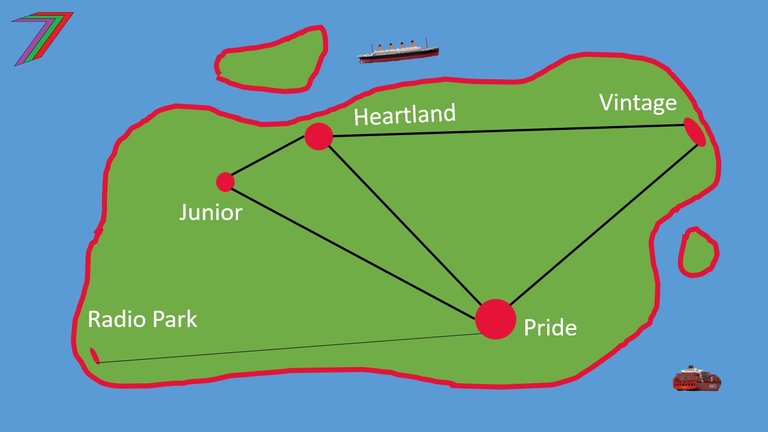
Game Data
Tables 1 and 2 contains data for the towns and cities, infrastructure and amenities.
Table 1: Population Growth and Hospital Data
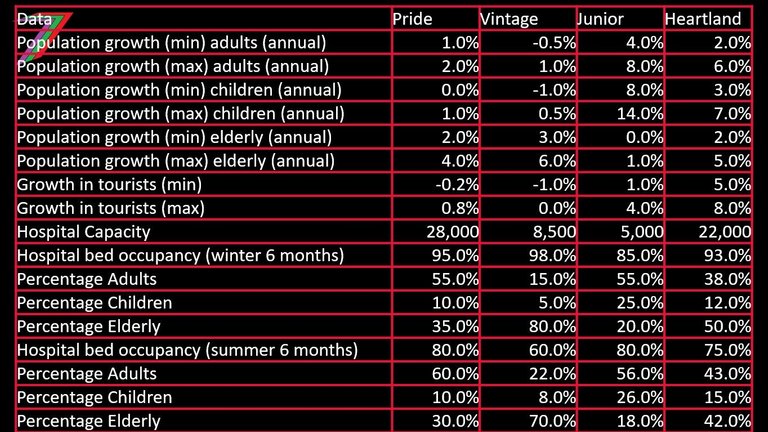
Table 2: High School, Public Transport and Entertainment Data
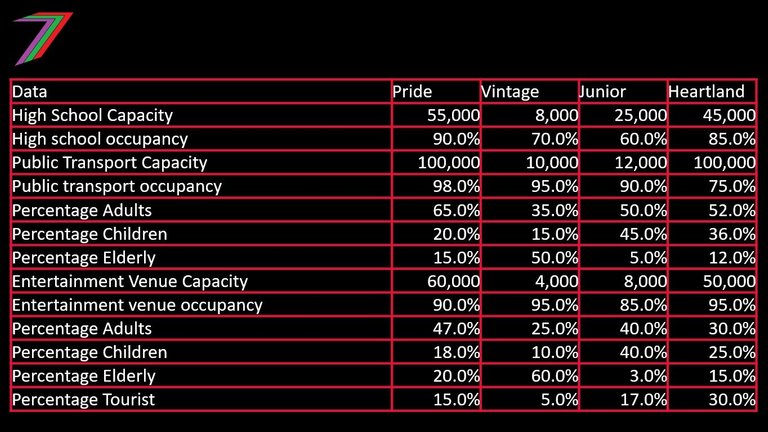
Table 3 contains CBA parameters and user cost parameters.
Table 3: CBA Parameters and User Costs
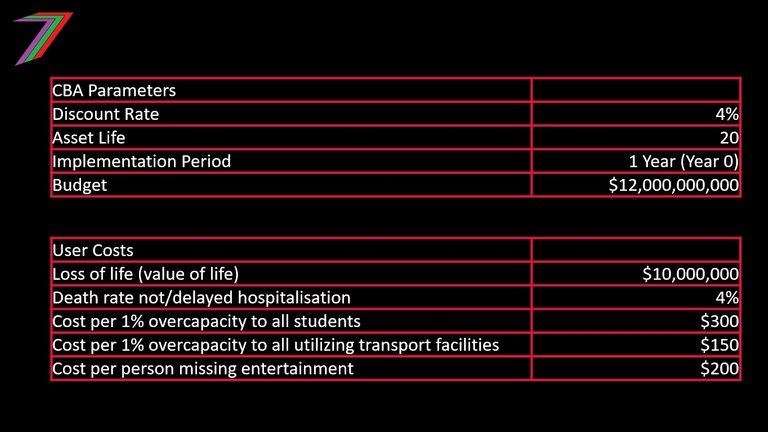
Investment Options
Participants have four different types of investment options. These relate to hospitals, schools, transport, and entertainment. Participants can investment in one, some, or all of the towns and cities stated in the question. Participants can choose between four levels of investment. They can increase capacity by 5%, 10%, 20%, or 50%. These increases in capacity are permanent across all 20 years of the evaluation. Table 4 contains the investment options and costs of investment for each town and city.
Table 4: Investment Options and Costs ($)
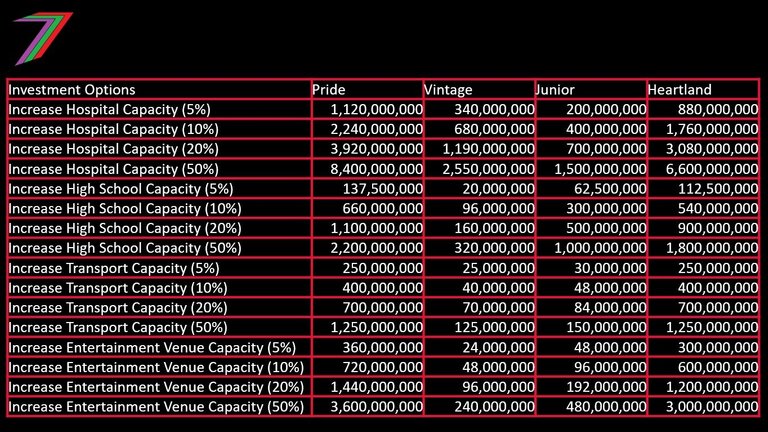
Important Note: You are not required to spend the entire budget. If you feel your investment proposals are sufficient (i.e. additional expenditure would not add to your return), you should opt not to continue investing.
Entry format
For this contest, I expect to see entries made in the following format:
Name of Place:
Investment 1:
Investment 2:
….
Name of Place:
Investment 1:
Investment 2:
….
Name of Place:
Investment 1:
Investment 2:
…
Name of Place:
Investment 1:
Investment 2:
…
Example of entry
Name of Place: Pride City
Investment 1: Increase Hospital Capacity (10%)
Name of Place: Vintage Town
Investment 1: Increase Hospital Capacity (20%)
Name of Place: Junior Town
Investment 1: Increase High School Capacity (50%)
Investment 2: Increase Transport Capacity (10%)
Name of Place: Heartland City
Investment 1: Increase Hospital Capacity (20%)
Investment 2: Increase Transport Capacity (20%)
Investment 3: Increase Entertainment Venue Capacity (50%)
The closing date and time for this contest is 6PM coordinated universal time (UTC) 02/04/2023. Responses after this time will not be accepted. The answers will be provided in the results post along with the video containing the generation of growth rates, the calculation of benefits and costs, and the NPVs for each participant.
I hope everyone has fun and enjoys this contest. I strongly recommend that you are well informed about the basic concepts of CBA before entering. I will be back with another contest in April.
More posts

If you want to read any of my other posts, you can click on the links below. These links will lead you to posts containing my collection of works. These 'Collection of Works' posts have been updated to contain links to the Hive versions of my posts.
Hive: Future of Social Media

Spectrumecons on the Hive blockchain





Name of Place: Pride City
Investment 1: Transport Capacity (20%)
Investment 2: High School Capacity (10%)
Name of Place: Vintage Town
Investment 1: Increase Hospital Capacity (50%)
Investment 2: Increase Transport Capacity (10%)
Name of Place: Junior Town
Investment 1: Hospital Capacity (20%)
Investment 2: Increase Transport Capacity (10%)
Name of Place: Heartland City
Investment 1: Increase Hospital Capacity (20%)
Congratulations @spectrumecons! You have completed the following achievement on the Hive blockchain And have been rewarded with New badge(s)
Your next payout target is 66000 HP.
The unit is Hive Power equivalent because post and comment rewards can be split into HP and HBD
You can view your badges on your board and compare yourself to others in the Ranking
If you no longer want to receive notifications, reply to this comment with the word
STOPCheck out our last posts:
Name of Place: Pride City
Investment 1: Increase Hospital Capacity (5%)
Investment 2: Increase High School Capacity (10%)
Name of Place: Vintage Town
Investment 1: Increase Hospital Capacity (5%)
Investment 2: Increase High School Capacity (10%)
Name of Place: Junior Town
Investment 1: Increase Hospital Capacity (5%)
Investment 2: Increase High School Capacity (10%)
Investment 3: Increase Transport Capacity (5%)
Name of Place: Heartland City
Investment 1: Increase High School Capacity (10%)
Investment 2: Increase Entertainment Venue Capacity (50%)
Name of Place: Pride City
Investment 1: Increase Hospital Capacity (10%)
Investment 2: Increase High School Capacity (20%)
Name of Place: Vintage Town
Investment 1: Increase Hospital Capacity (10%)
Investment 2: Increase High School Capacity (20%)
Name of Place: Junior Town
Investment 1: Increase Hospital Capacity (10%)
Investment 2: Increase High School Capacity (20%)
Investment 3: Increase Transport Capacity (5%)
Name of Place: Heartland City
Investment 1: Increase High School Capacity (10%)
Investment 2: Increase Entertainment Venue Capacity (30%)
Name of place: pride City
Investment 1: increase high school capacity (20%)
Investment 2: increase transport capacity (10%)
Name of place: Vintage Town
Investment 1: increase hospital capacity (20%)
Investment 2: increase high school capacity (10%)
Name of place: Junior Town
Investment 1: increase hospital capacity (50%)
Investments 2: increase transport capacity (20%)
Name of place: Heartland City
Investment 1: Increase in Entertainment Venue Capacity (50%)
Investment 2: Increase in hospital capacity (10%)
Investment 3: Increase in transport capacity (5%)
Name of Place: Pride City
Investment 1: Transport Capacity (10%)
Investment 2: High School Capacity (15%)
Name of Place: Vintage Town
Investment 1: Increase Hospital Capacity (40%)
Investment 2: Increase Transport Capacity (20%)
Name of Place: Junior Town
Investment 1: Hospital Capacity (50%)
Investment 2: Increase Transport Capacity (20%)
Name of Place: Heartland City
Investment 1: Increase Hospital Capacity (40%)
Investment 2: Increase Entertainment Venue Capacity (30%)
https://twitter.com/1004589096612737025/status/1641831159632994305
The rewards earned on this comment will go directly to the people( @spectrumecons ) sharing the post on Twitter as long as they are registered with @poshtoken. Sign up at https://hiveposh.com.
Name of Place: Pride City
Investment 1: Increase Hospital Capacity (20%)
Name of Place: Vintage Town
Investment 1: Increase Hospital Capacity (20%)
Name of Place: Junior Town
Investment 1: Increase High School Capacity (20%)
Investment 2: Increase Transport Capacity (40%)
Name of Place: Heartland City
Investment 1: Increase Hospital Capacity (20%)
Investment 2: Increase Transport Capacity (40%)
Investment 3: Increase Entertainment Venue Capacity (50%)
Name of Place: Pride City
Investment 1: Increase Hospital Capacity (50%)
Investment 2: Increase High School Capacity (20%)
Name of Place: Vintage Town
Investment 1: Increase Hospital Capacity (20%)
Investment 2: Increase High School Capacity (20%)
Name of Place: Junior Town
Investment 1: Increase Hospital Capacity (10%)
Investment 2: Increase High School Capacity (20%)
Name of Place: Heartland City
Investment 1: Increase High School Capacity (20%)
Investment 2: Increase Entertainment Venue Capacity (50%)
Name of Place : Pride City
Investment 1: Increased in High School Capacity 20%
Investment 2: Increase in Hospital Capacity 20%
Investment 3: Increase in Transport Capacity 10%
Name of Place: Heartland City
Investment 1: Increased Entertainment Venue Capacity 20%
Investment 2: Increase in Hospital Capacity 10%
Name of Place: Vintage City
Investment 1: Increase in Hospital Capacity 50
Name of Place: Pride City
Investment 1: Increase Hospital Capacity (10%)
Investment 2: Increase Transport Capacity (5%)
Name of Place: Vintage Town
Investment 1: Increase Hospital Capacity (10%)
Investment 2: Increase Transport Capacity (5%)
Investment 3: Increase Entertainment Capacity (50%)
Name of Place: Junior Town
Investment 1: Increase Hospital Capacity (10%)
Investment 2: Increase High School Capacity (20%)
Name of Place: Heartland City
Investment 1: Increase Hospitality Capacity (10%)
Investment 2: Increase Transport Capacity (5%)